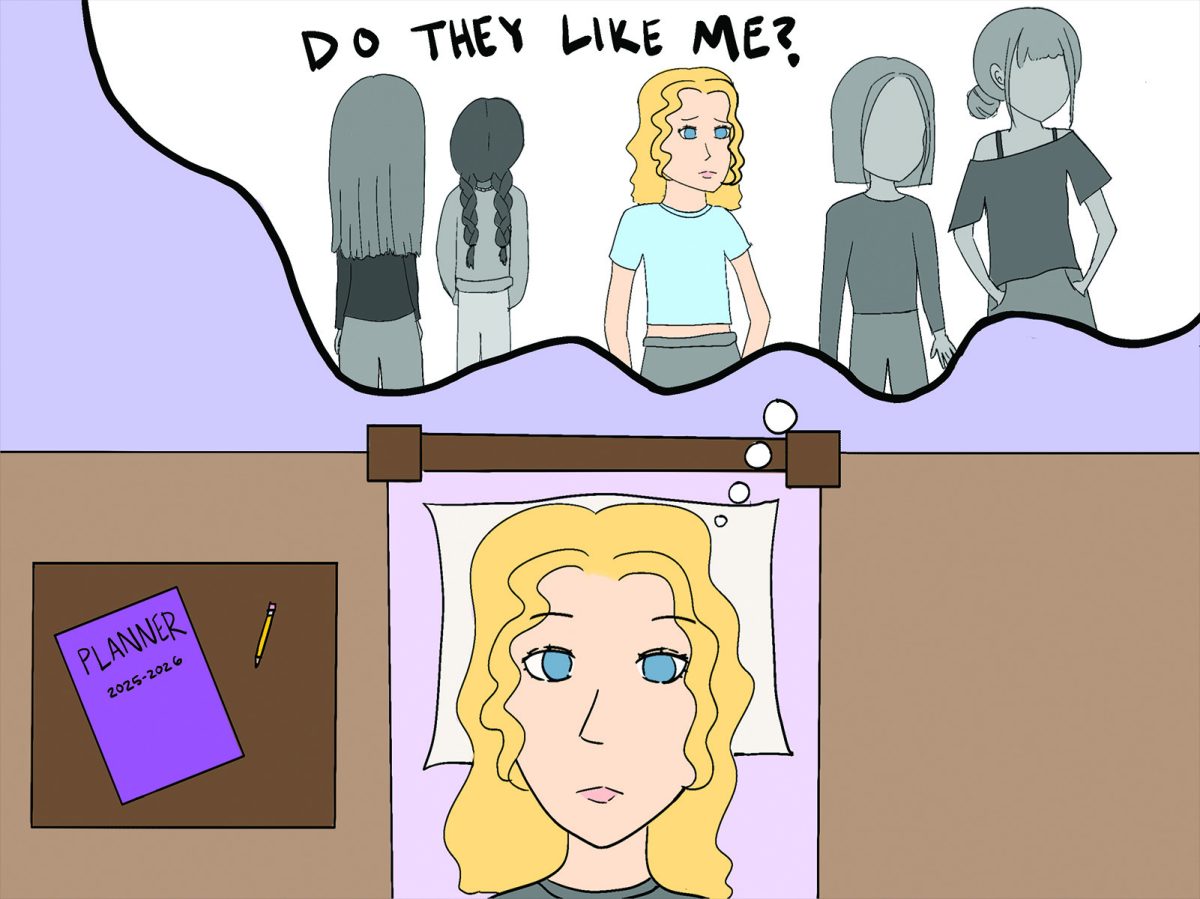I lie awake in the middle of the night with kinesiology tape plastered across my mouth. No, I’m not in a hostage situation. Just a few hours ago I decided, out of my own free will, to tape my mouth shut.
After scouring the internet for ways to prevent snoring, this was the strategy I landed on. To my knowledge, this approach hasn’t been medically tested, nor can I attest to its safety. But in a few weeks I’d be rooming with friends on a trip and was desperate to not keep them up by snoring.
Years ago, my sister thought she heard me snore once. Just once. No hardcore evidence that I’d be unbearable to share a room with, but to me the case was closed. I worried that if I annoyed my friends in any way, even as small as snoring, that might make them pull away from me. If this kept happening, then they might truly dislike me.
I’ve developed a habit of trying to preemptively fix any potential conflict by shrinking parts of myself that could be unlikeable. This habit stems from a fear of not being liked, of not belonging. That fear shapes how I navigate the world, but by constantly overcorrecting, I form an ingenuine version of myself.
The absurdity of taping my mouth shut hit me an hour later, when I still couldn’t fall asleep. I was uncomfortable, dehydrated, wide awake. And for what? All because I was so concerned about possibly, maybe, potentially snoring and inconveniencing my friends.
After finally taking the tape off, I realized many people live this way. Maybe not with physical tape over their mouths, but by silencing their opinions and needs. I see peers take on excessive responsibility even when it’s inconvenient for them, apologize a ridiculous amount without real reason and stay silent when they disagree with a friend to avoid conflict.
As a chronic people pleaser, I’ve always placed immense weight on others’ opinions of me. But I’ve realized this isn’t selfless at all, it’s actually selfish. People pleasing assumes others care far more about me than they actually do. It’s not that people pleasers are consciously conceited, just that anxiety makes every thought revolve around “me, me, me.”
Realizing this selfishness is freeing. When I can acknowledge that it’s my own anxieties steering my behavior, not other people, I recognize I have the power to change them. People pleasing feels safe because it avoids conflict. But avoiding discomfort only keeps us from being our authentic selves.
We need to build the muscle that can tolerate disappointment from others. Part of that looks like setting boundaries, which I’ve learned only frustrates those who benefitted from their absence. It means speaking up when something bothers me and letting go of the urge to apologize when it’s not my fault. These changes aren’t easy, but they’re steps to dropping the habit of performing for others.
I need to have bravery to stand firm as myself in the face of others’ disapproval. I need to rip the tape off and have the courage to be disliked.


